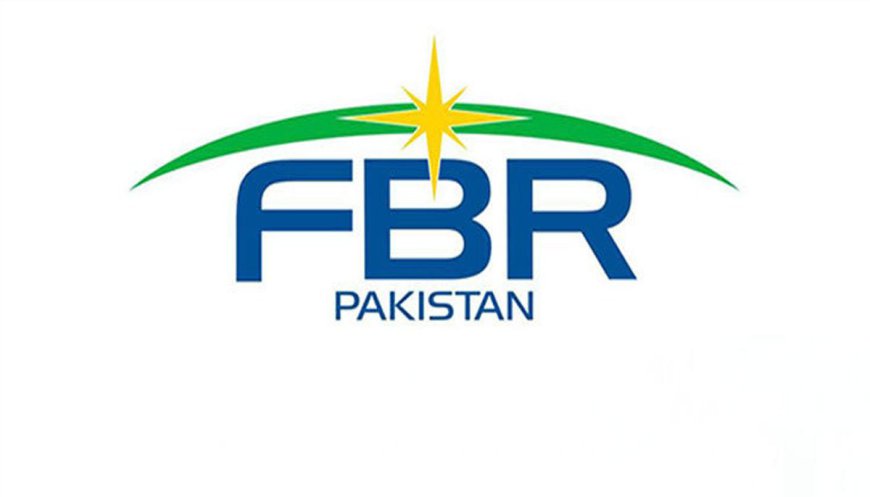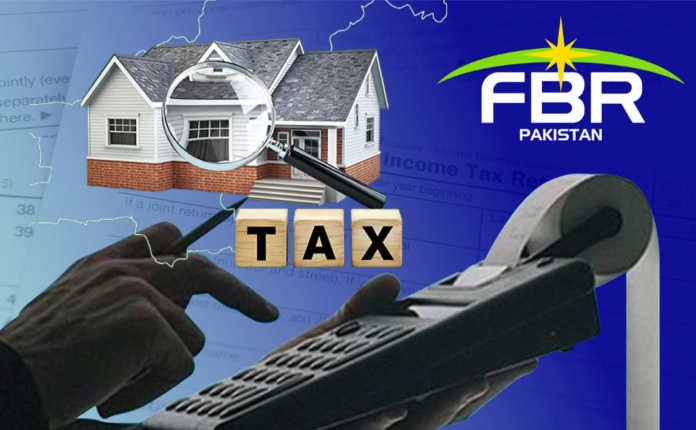How Will FBR's Tax Relief Boost the Real Estate Market for Overseas Pakistanis?
Discover how FBR's tax relief for overseas Pakistanis is set to boost real estate investments, making property ownership more accessible and profitable.

The real estate market in Pakistan has always been an attractive investment option for people, especially for overseas Pakistanis. With a large diaspora of Pakistanis living abroad, the real estate sector plays a crucial role in driving the country's economy. However, the challenges faced by overseas Pakistanis in investing in property have often included high taxes and complex regulations. In response to this, the Federal Board of Revenue (FBR) has introduced tax relief measures aimed at making it easier and more attractive for overseas Pakistanis to invest in the real estate market. This article explores how FBR’s tax relief will boost the real estate market for overseas Pakistanis.

1. Understanding FBR’s Tax Relief for Overseas Pakistanis
The FBR’s tax relief package for overseas Pakistanis aims to simplify the process of property investments, making it more affordable and convenient for expatriates to enter the Pakistani real estate market. Previously, overseas investors had to deal with several hurdles, including high taxes, complicated paperwork, and the lack of clear regulations. However, with the introduction of tax relief measures, these barriers are gradually being reduced, making it easier for overseas Pakistanis to invest in property.
The relief measures generally include tax exemptions, lower tax rates, and reduced registration fees. These incentives are designed to attract overseas Pakistanis who want to invest in residential and commercial properties in Pakistan. By easing the financial burden on these investors, the FBR hopes to stimulate demand in the real estate sector, which in turn will drive economic growth and create more job opportunities.
2. Lower Tax Burden
One of the most significant benefits of the FBR’s tax relief is the reduction in tax rates for overseas Pakistanis investing in real estate. Before these changes, investors often faced hefty taxes that made property investment less appealing. The FBR’s new tax structure offers lower tax rates on property transactions, including the purchase and sale of land, residential properties, and commercial buildings.
For overseas Pakistanis, this tax reduction means they can now make more profitable investments without worrying about excessive tax liabilities. By lowering the tax burden, the government aims to create a more investor-friendly environment and encourage more Pakistanis living abroad to bring their money back home.
3. Encouraging Property Ownership
Owning property is a dream for many overseas Pakistanis, but the high costs and complicated tax regulations often made it seem out of reach. The tax relief offered by the FBR will not only reduce the costs of purchasing property but also help overseas Pakistanis overcome bureaucratic obstacles that can sometimes make the process difficult.
The ease of access to property ownership, combined with the tax incentives, will likely result in more overseas Pakistanis considering investing in real estate. This will contribute to a growing demand for housing, particularly in urban centers such as Lahore, Islamabad, Karachi, and emerging cities like Gwadar and Rawalpindi. More property transactions will stimulate construction activity, which will provide a boost to the overall economy.
4. Increased Investment in New Developments
The tax relief is expected to increase investments in new real estate projects, including residential and commercial developments. With reduced tax rates, overseas investors will find it more attractive to invest in these developments, knowing they can earn better returns on their investments due to lower costs.
Additionally, many real estate developers will see this as an opportunity to target the overseas market more effectively. They may offer specialized payment plans or marketing strategies aimed at overseas Pakistanis, making it easier for them to invest in newly launched projects. This will not only benefit developers but also help expand the real estate market.
5. Boosting the Construction Sector
A surge in real estate investments from overseas Pakistanis will directly benefit the construction sector. When more people invest in property, there is a greater demand for new buildings, roads, and infrastructure. This, in turn, creates more job opportunities for local workers, from construction laborers to engineers, architects, and project managers.
Moreover, with the influx of overseas investment, developers will have the capital required to undertake large-scale construction projects, including housing schemes, commercial properties, and mixed-use developments. The rise in construction activity will contribute to Pakistan's overall economic growth, helping to increase the country's GDP and employment rate.
6. Repatriation of Capital
Many overseas Pakistanis have large sums of money invested abroad, often in foreign banks or foreign assets. The tax relief package by the FBR encourages these individuals to repatriate their capital back to Pakistan and invest it in the real estate sector. This repatriation is beneficial not only for the real estate market but also for the Pakistani economy as a whole.
When overseas Pakistanis bring their money back into the country, it helps increase the supply of foreign exchange, strengthening the value of the Pakistani rupee. It also gives Pakistan a much-needed influx of capital, which can be used for developmental projects and to improve infrastructure. This repatriation of capital is crucial for Pakistan's long-term economic stability.
7. Creating a Transparent Real Estate Market
In addition to tax relief, the FBR’s measures also focus on creating a more transparent real estate market. Transparency is one of the biggest concerns for overseas investors, as they may fear fraud or unfair dealings when buying property from abroad. With the introduction of tax relief and regulatory changes, the government aims to improve the overall credibility of the market.
The FBR has also worked towards digitalizing the property registration and taxation process, making it easier for overseas Pakistanis to track their investments and ensure that everything is being handled correctly. This increased transparency and convenience will further enhance investor confidence and attract more overseas Pakistanis to invest in real estate.
8. Conclusion
The FBR’s tax relief measures represent a significant opportunity for overseas Pakistanis to invest in the country's real estate market. By lowering taxes, simplifying the investment process, and encouraging transparency, these measures will make property investment more attractive and accessible. This, in turn, will stimulate growth in the real estate sector, create jobs, and contribute to Pakistan's overall economic development.
As more overseas Pakistanis take advantage of the tax relief and invest in real estate, the market will experience increased demand for properties, particularly in urban areas. Developers will respond by launching new projects, and the construction sector will see growth, leading to job creation and further economic benefits. Ultimately, the FBR's tax relief is a win-win situation for both overseas investors and Pakistan’s economy.
